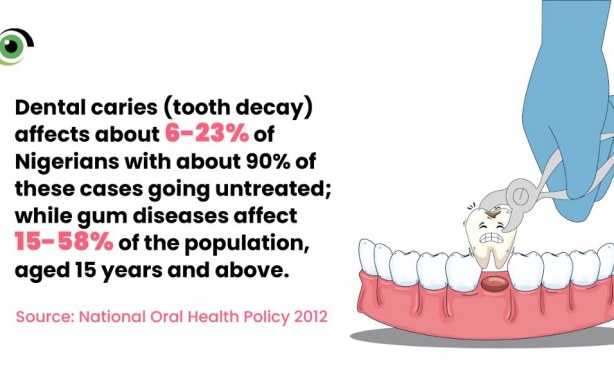-
Nigeria: 'Gain a Child, Lose a Tooth' - Old Saying Holds True for Women in Northern Nigeria
The Conversation Africa, 29 June 2022
Childbearing has an impact on the health of women, and the impact grows with the number of times a woman has been pregnant for longer than 24 weeks. Pregnancy and breastfeeding put… Read more »
-
Nigeria: World Oral Health Day 2022 - Smile Be Proud of Your Teeth
Nigeria Health Watch, 23 March 2022
"I have never been to the dentist." Precious, Student. Read more »
Gain a Child, Lose a Tooth - A Truism In Nigeria's North
There's a widespread customary belief that having an increasing number of children results in tooth loss. "Gain a child, lose a tooth", or "for every child, a tooth is lost" are common proverbs in many societies. The biological basis of these beliefs is still questioned, writes Elizabeth Oziegbe for The Conversation.
Childbearing has an impact on women's health, and the impact grows with the number of times a woman has been pregnant for longer than 24 weeks. Pregnancy and breastfeeding put energy demands on a woman and can cause permanent changes to a mother's health.
A study conducted on rural women in northern Nigeria looked at how age, reproductive and socioeconomic factors, and oral health practices contributed to tooth loss. It involved 612 women who live in rural northern Nigeria. They were between the ages of 13-65. They all identified as Hausa.
The study found that women with more than five children lost more teeth than women of the same age who'd had fewer children. The study also highlighted the need to give more attention to the oral health of women during the reproductive years, in particular those who have many children.
Generally in Nigeria, the use of dental care services is poor, due to the limited availability and accessibility to oral health clinics.
InFocus
-
Nigeria, like many low and middle-income countries, accounts for some of the highest burdens of maternal deaths. Nigeria accounts for about 20% of global maternal deaths, largely ... Read more »
-
About one in every five global maternal deaths happens in Nigeria. Improving maternal health outcomes must remain a key priority that generates urgent policy action. According to ... Read more »





